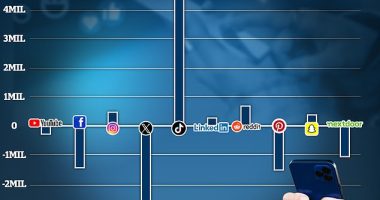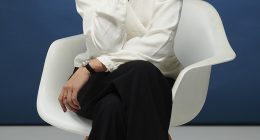
Face masks do make it harder to identify people because it covers the nose and mouth, key features the human brain uses to put names to faces.
A study from Israel revealed wearing a mask reduces a person’s ability to recognise people by 15 per cent.
Masks have become ubiquitous around the world in the wake of the coronavirus pandemic and as people try to avoid catching and spreading Covid-19.
But they pose their own issues, researchers say, inhibiting social interactions and making it harder for people to talk to each other.


A study from Israel revealed wearing a mask reduces a person’s ability to recognise people by 15 per cent. Masks have become ubiquitous around the world in the wake of the coronavirus pandemic and as people try to avoid catching and spreading Covid-19 (stock)
‘For those of you who don’t always recognize a friend or acquaintance wearing a mask, you are not alone,’ according to lead researcher Professor Tzvi Ganel from Ben Gurion University of the Negev.
‘Faces are among the most informative and significant visual stimuli in human perception and play a unique role in communicative, social daily interactions,’ the researchers note.
‘The unprecedented effort to minimize COVID-19 transmission has created a new dimension in facial recognition due to mask wearing.’
A previous study from the University of Manchester found wearing a covering makes lip-reading impossible; obscures a lot of non-verbal communication, such as facial expressions; and muffles sound.
A total of 460 people were quizzed and 46 per cent said wearing a mask did alter communication, with a further 25 per cent saying it may have done.
The latest study asked 496 people to identify faces online both with and without a mask on in order to compare the impact coverings had.
Success rate dropped by 15 per cent because the brain has to consciously piece together pieces of information from only a small portion of the face, whereas normally the whole face provides a holistic picture which is processed automatically.
‘This could lead to many errors in correctly recognizing people we know, or alternatively, accidently recognizing faces of unfamiliar face as people we know,’ says Professor Galia Avidan from BGU.
‘Face masks could be even more challenging to people whose face recognition skills are not ideal to begin with and cause greater impairment.’
This post first appeared on Dailymail.co.uk







